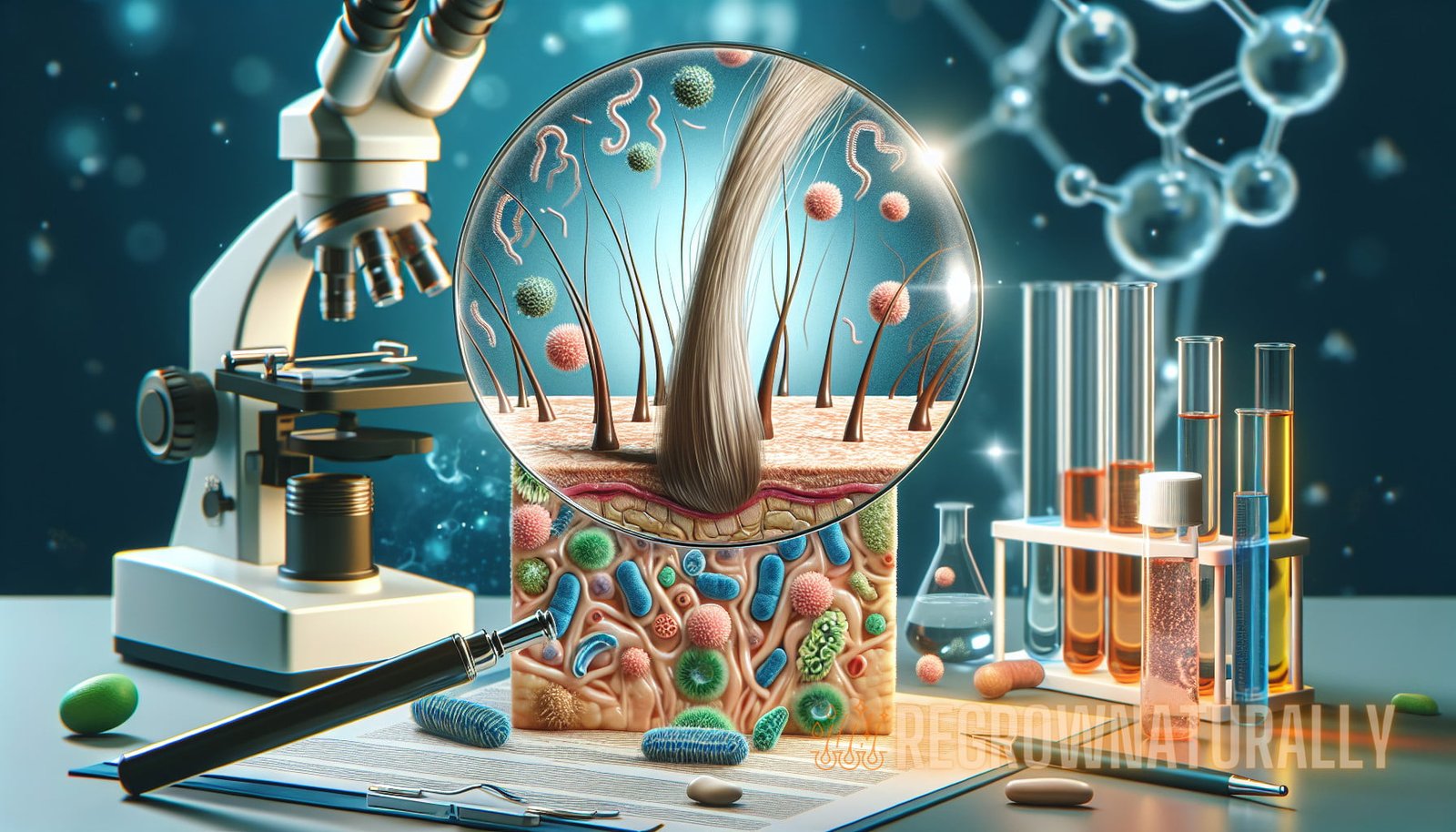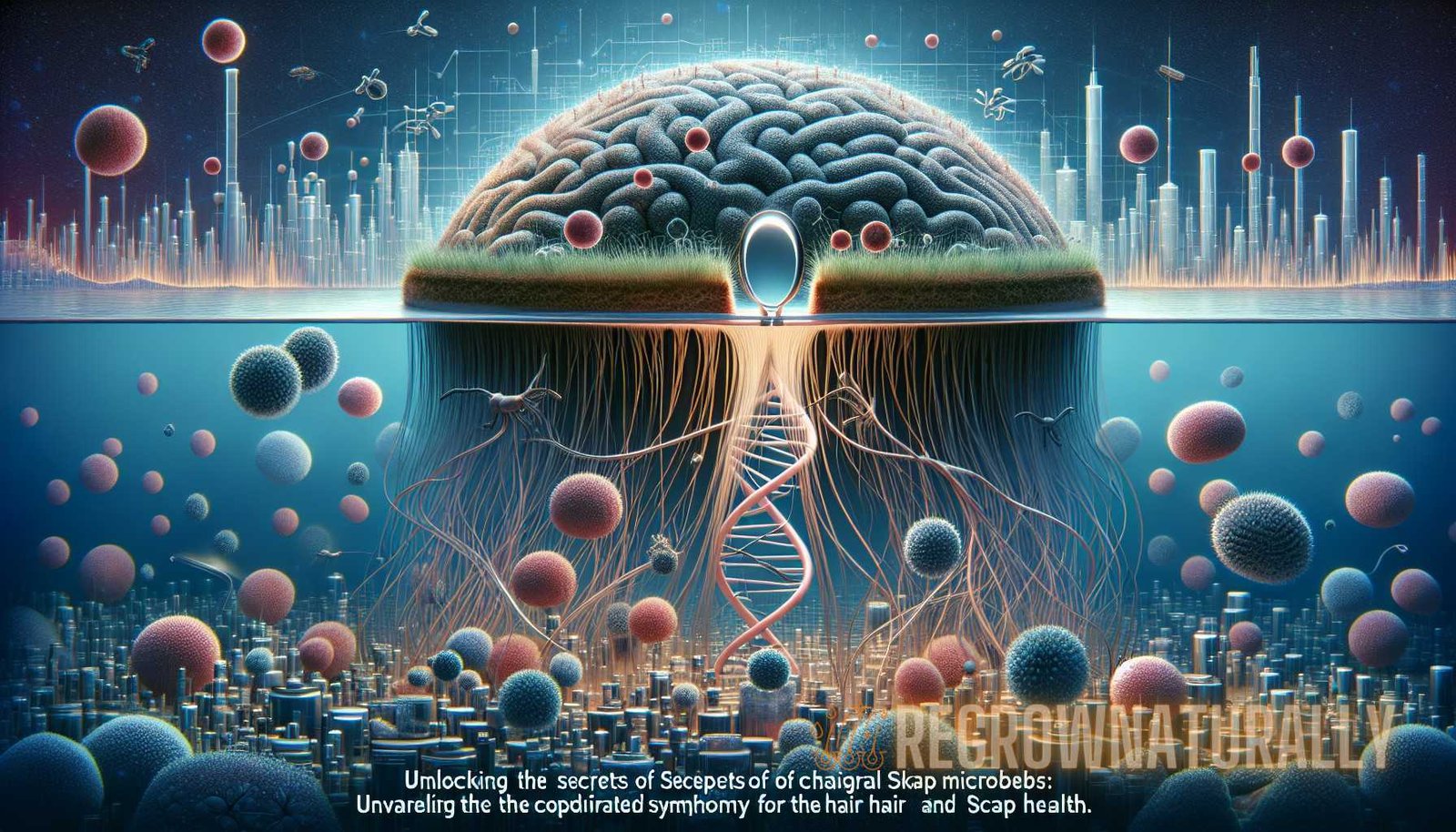Introduction
When it comes to hair health, most people focus on external factors such as shampoo, conditioner, and styling products. However, there is an often overlooked aspect of hair health that starts at the root: the scalp microbiome. The scalp microbiome refers to the complex community of microorganisms that inhabit the scalp, including bacteria, fungi, and viruses. These microorganisms play a crucial role in maintaining scalp and hair health, and understanding the interplay between the scalp microbiome and hair health can provide valuable insights into improving hair care practices.
The Scalp Microbiome: An Intricate Ecosystem
The scalp microbiome is a diverse and intricate ecosystem that consists of trillions of microorganisms. Just like the gut microbiome, the composition of the scalp microbiome varies from individual to individual. However, certain microorganisms are commonly found on the scalp, including:
- Staphylococcus: This bacteria is commonly found on the scalp and can play a role in maintaining skin health.
- Propionibacterium acnes: This bacterium is often associated with acne, but it also inhabits the scalp and has been linked to scalp health.
- Malassezia: This fungus is a natural resident of the scalp and can contribute to dandruff and other scalp conditions when it becomes overgrown.
In addition to these common microorganisms, the scalp microbiome also includes other types of bacteria, fungi, and viruses that have a less well-defined role in scalp and hair health.
The Role of the Scalp Microbiome in Hair Health
The scalp microbiome plays a crucial role in maintaining scalp and hair health. It helps regulate the scalp’s pH balance, moisture levels, and oil production. When the scalp microbiome is in balance, it creates an environment that promotes healthy hair growth and prevents scalp conditions such as dandruff, eczema, and fungal infections.
Studies have shown that an imbalance in the scalp microbiome, known as dysbiosis, can have adverse effects on hair health. Dysbiosis can lead to inflammation, itching, dryness, and excess oil production, all of which can negatively impact hair follicles and impede healthy hair growth.
Imbalances in the scalp microbiome can be caused by various factors, including:
- Poor hygiene practices: Infrequent washing, excessive use of harsh hair products, and inadequate scalp cleansing can disrupt the balance of the scalp microbiome.
- Environmental factors: Exposure to pollution, UV radiation, and extreme temperatures can alter the composition of the scalp microbiome.
- Diet and lifestyle: A diet high in processed foods and low in nutrients, along with stress and lack of sleep, can affect the scalp microbiome.
Scalp Health and Hair Loss
One of the most significant ways the scalp microbiome influences hair health is through its impact on hair loss. Research has shown that a healthy scalp microbiome is associated with reduced hair loss, while an imbalanced or disrupted scalp microbiome can contribute to hair thinning and shedding.
Several mechanisms can explain this relationship. First, an imbalance in the scalp microbiome can lead to chronic inflammation, which can damage hair follicles and interrupt the hair growth cycle. Inflammation disrupts the delicate balance of hair growth phases, leading to shorter and weaker hair strands.

Second, specific microorganisms in the scalp microbiome have been linked to the production of certain enzymes that can disrupt hair follicles. For example, certain strains of Malassezia fungi produce an enzyme called lipase, which can break down the fats in the sebum on the scalp. This process generates by-products that can irritate the scalp and inhibit hair growth.
Lastly, an imbalanced scalp microbiome can weaken the scalp’s natural defense mechanisms, leaving it vulnerable to external stressors such as pollution and UV radiation. This can further exacerbate inflammation and damage hair follicles, leading to hair loss.
Maintaining a Healthy Scalp Microbiome
Given the vital role of the scalp microbiome in hair health, it’s crucial to maintain a healthy balance of microorganisms on the scalp. Here are some strategies to support a healthy scalp microbiome:
- Regular scalp cleansing: Regularly washing the scalp with a gentle, pH-balanced shampoo can help remove excess oil, dead skin cells, and other impurities without stripping away the natural oils that support the scalp microbiome.
- Use probiotic hair products: Probiotic hair products contain beneficial bacteria and fungi that can help restore and maintain a healthy balance in the scalp microbiome. Look for products that contain probiotic strains such as Lactobacillus and Bifidobacterium.
- Protect the scalp from environmental stressors: Wearing a hat or using a protective spray can shield the scalp from pollution and UV radiation, reducing the risk of imbalances in the scalp microbiome.
- Eat a healthy, nutrient-rich diet: A diet rich in fruits, vegetables, whole grains, and lean proteins provides the essential nutrients needed for a healthy scalp microbiome. Antioxidant-rich foods can also help reduce inflammation.
- Manage stress levels: Chronic stress can disrupt the balance of the scalp microbiome. Engaging in stress-reducing activities such as exercise, meditation, and adequate sleep can contribute to a healthy scalp microbiome.
It’s worth noting that the use of harsh hair products, excessive heat styling, and other damaging hair practices can disrupt the balance of the scalp microbiome and should be avoided or minimized.
Conclusion
The scalp microbiome plays a crucial role in maintaining scalp and hair health. Understanding the interplay between the scalp microbiome and hair health can provide valuable insights into effective hair care practices. By supporting a healthy balance of microorganisms on the scalp through regular cleansing, the use of probiotic hair products, and the adoption of a healthy lifestyle, it’s possible to promote optimal scalp and hair health. By paying attention to the often overlooked aspect of the scalp microbiome, we can unlock the secrets to achieving and maintaining luscious and healthy hair.
For more information on the scalp microbiome and its impact on hair health, check out these articles on Regrow Naturally:
1. The Secret Link: How the Scalp Microbiome Affects Hair Health and Well-Being
2. Scalp Unveiled: The Key to Healthy Hair Growth
References:
- Wikipedia: Microorganism


